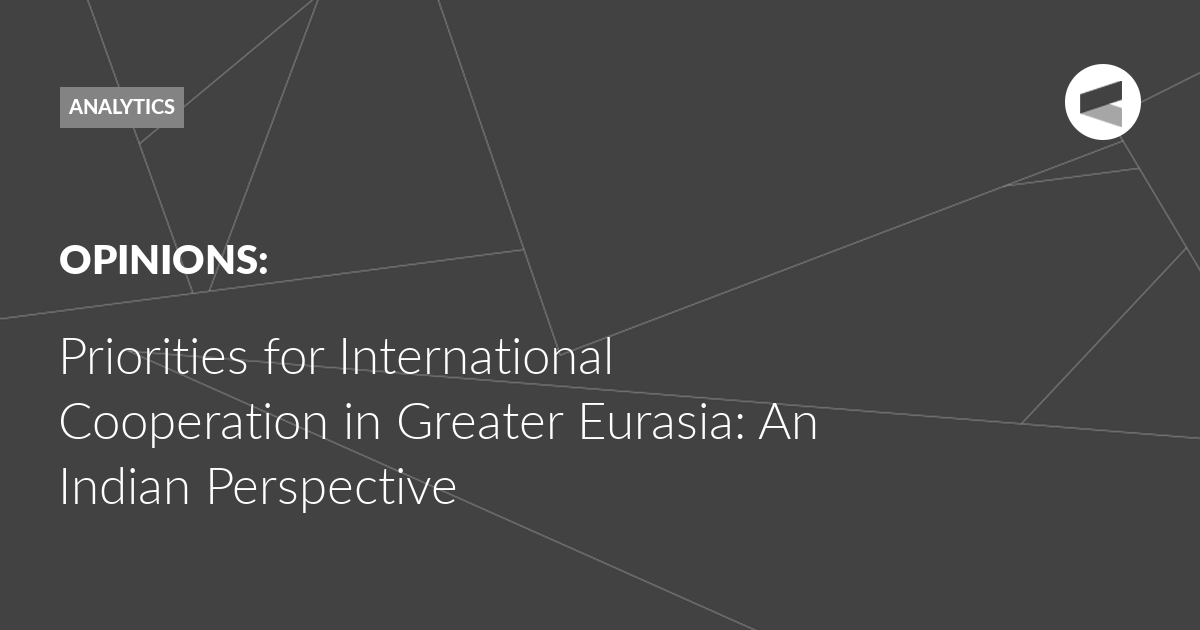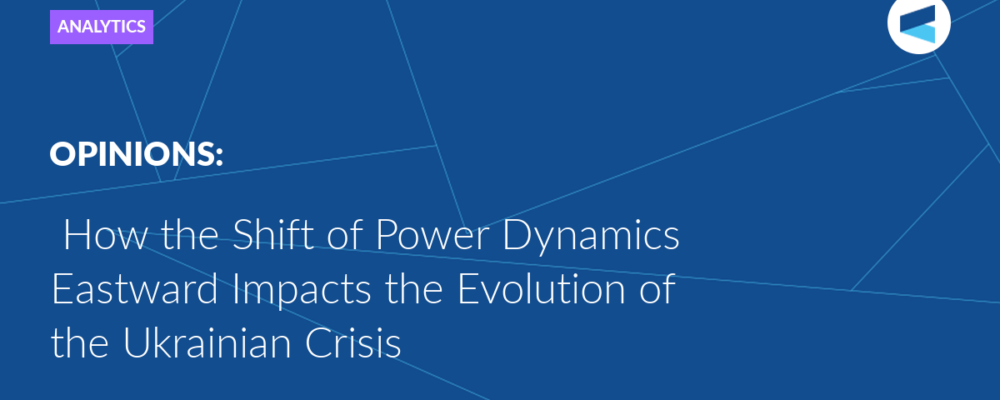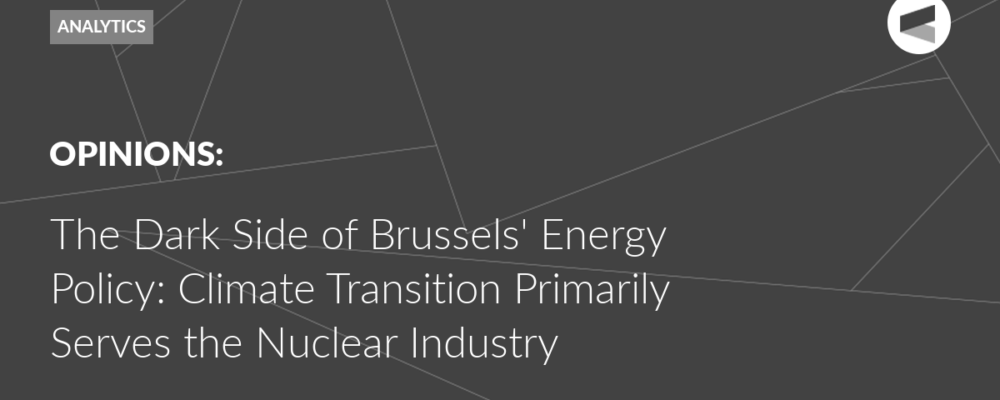Eurasia, a region of immense geopolitical significance due to its strategic location and abundant natural resources, has always been a focus of global interest. The Russia-Ukraine conflict that erupted in February 2022 has further underscored the evolving dynamics of Eurasian geopolitics. A key driver of these changes is the growing influence of China. As Beijing expands its economic and political reach, it is increasingly shaping the geopolitics of Eurasia. However, China’s deepening engagements in Central Asia carry long-term implications. This, along with the noticeable challenge to Russian influence, is reshaping power dynamics and strategic alliances. The evolving roles of other players, such as Turkey, Iran, the US, and the EU, also contribute to the intricate web of Eurasian geopolitics. These entities are actively involved in shaping the political landscape of Eurasia, adding to the complex interactions and conflicts that define the region in all its intricacy and volatility.
Central Asia, strategically positioned at the crossroads of Eurasia, has historically been a focal point of intense geopolitical competition. Comprising five independent republics, each pursuing pragmatic foreign policies and implementing ongoing domestic reforms, the region has established a cohesive framework for regional integration. This presents numerous opportunities for other nations to enhance their involvement. In the context of renewed geopolitical interests in Central Asia since the beginning of the Ukraine crisis, the nations of Central Asia have adhered to their multi-vector foreign policy, actively managing their engagements with Russia and China, as well as the United States and other Western countries. Through astute negotiation and active participation, these republics are not just passive observers, but dynamic participants in the intricate geopolitical landscape, actively shaping their own destinies.
In the wake of the Ukraine crisis, the United States and other Western nations have viewed it as an opportunity to revitalise their Central Asia policy. This year, there have been several high-level visits, including the first-ever visit by French President Emmanuel Macron and German President Frank-Walter Steinmeier. Additionally, the Central Asian countries held their first-ever C5+1 summit with the USA and Germany. The West has renewed its interest primarily in order to weaken Russian influence in Central Asia and prevent these countries from helping Moscow evade sanctions. Despite widespread anti-Russia narratives, Moscow remains the most influential power in the region.
India, a nation with a rich historical and cultural heritage dating back thousands of years, is now positioned as a significant rising global power. Its rising influence is shaped by a distinct worldview founded on its civilisational values. Central to India’s approach to international cooperation is the ancient principle of “Vasudhaiva Kutumbakam” (One Earth, One Family, One Future) – embodying the belief that the world is a single family and emphasising the interconnected destiny of humanity. This principle underscores India’s global engagement approach and commitment to fostering unity and cooperation among nations.
When considering India’s engagement in greater Eurasia, it is vital to understand its four main priorities:
1. Promoting Multipolarity
India’s approach to the world is greatly influenced by the concept of multipolarity, which underscores the need for a balanced distribution of power and influence among major global players. This perspective reflects India’s commitment to a fair and inclusive global order that respects different nations’ diverse viewpoints and perspectives (especially the Global South). Additionally, it emphasises the importance of meaningful representation of all nations in international decision-making processes, ensuring that diverse voices are heard and valued in shaping global policies and initiatives. New Delhi has advocated for comprehensive reforms within the United Nations (UN) organisation to achieve its objective. This effort involves advocating for changes in various aspects of the UN’s structure and operations to meet better developing countries’ needs and tackle evolving global challenges.
2. Regional diplomacy
As an emerging economic and political actor in the Indian subcontinent, India plays a crucial role in shaping the geopolitical landscape of Greater Eurasia. With its longstanding relationships with the countries of Central Asia, the Middle East, and Southeast Asia countries, India has been actively engaged in regional diplomacy to promote security, stability, and economic cooperation.
India’s ‘Act East’ policy, launched in 2014, is a key component of its regional diplomacy. It aims to promote economic, cultural, and strategic ties with the Asia-Pacific region. As part of this policy, India has been actively engaging with countries in Central Asia, the Middle East, and Southeast Asia. Its participation in organisations such as the Shanghai Cooperation Organisation (SCO) and the BRICS (now BRICS PLUS) further demonstrates its commitment to deepening regional integration and fostering closer ties with neighbouring countries. Under its SCO chairmanship (2023), India set up new pillars of cooperation among the members of the SCO, such as Traditional Medicine, Startups and Innovation, Digital Inclusion, Youth Empowerment, and Shared Buddhist Heritage. This has further given impetus to India-Central Asia relations. In addition, India’s participation in initiatives like the International North-South Transport Corridor (INSTC) and the Chabahar Port project reflects its efforts to enhance connectivity and trade linkages across Greater Eurasia.
3. Pursuing Economic Opportunities
India is firmly committed to exploring economic opportunities throughout the wider Eurasian region. By identifying the potential for mutually beneficial partnerships and collaborations, India aims to leverage its growing economy and expanding market to further economic growth and development in the region. India is proactively working towards fostering solid economic linkages with neighbouring nations and beyond by focusing on trade, investment, and technological innovation. In light of the Ukraine conflict, India’s increased trade with Russia unequivocally demonstrates its commitment to seizing economic opportunities. However, due to a lack of connectivity, India’s trade linkages with Central Asia have not reached their full potential. In response, New Delhi is actively pursuing the realisation of the INSTC and Chabahar Port projects to bridge this gap.
4. Addressing Security Concerns
In today’s interconnected world, addressing security challenges that transcend national borders is imperative. Regional and global cooperation are crucial in tackling these issues. The Eurasian region is highly susceptible to these emerging security threats, which have more significant regional implications for India. Therefore, India is dedicated to actively participating in security initiatives within the Greater Eurasia region. This commitment involves actively engaging in counterterrorism, cybersecurity, and maritime security efforts. India has consistently raised concerns about the issue of terrorism financing at various regional and international forums. This includes highlighting the challenges posed by efforts to fund terrorist activities and the need for collaborative efforts to combat this global threat.
India’s vision for the region focuses on promoting stability and peace, which are achievable through collaborative efforts to address common security threats and safeguard shared interests. As a result of the 23rd SCO summit under India’s presidency, the member nations signed the New Delhi Declaration, emphasising the critical need for the international community to unite in countering terrorist, separatist, and extremist groups. The declaration stressed the importance of proactively preventing the spread of religious intolerance, aggressive nationalism, ethnic and racial discrimination, xenophobia, fascism, and chauvinism. Additionally, the leaders adopted two significant joint statements, one focusing on countering the radicalisation which leads to separatism, extremism, and terrorism and the other on cooperation in digital transformation.
The Way Forward
India should prioritise strengthening its strategic partnerships with key players in the Eurasian region, including Russia and the Central Asian countries.
India should continue to actively participate in initiatives promoting economic cooperation and connectivity across Greater Eurasia. This includes furthering its involvement in projects like the International North-South Transport Corridor (INSTC) and the Chabahar Port and exploring new avenues for enhancing trade linkages and economic collaboration with Eurasian nations.
Given the evolving dynamics in Eurasian geopolitics, India should carefully navigate its relationships with major powers such as China, Russia, and the United States. Maintaining a balanced approach while safeguarding its strategic interests will be crucial in shaping India’s regional role and contributing to a stable and multipolar global order.
Conclusion
The ever-changing
geopolitics of Eurasia, especially from an Indian perspective, portrays a
complex landscape shaped by the interactions of major global powers such as
Russia, China, the US, and the European Union. The ongoing Russia-Ukraine
conflict has underscored the evolving dynamics in the region. In the face of a
rapidly changing global order, India deftly navigates its relations with Russia
and the Western countries. India prioritises promoting multipolarity and
regional diplomacy as an emerging global power in its engagement with Greater
Eurasia. As the region undergoes significant transformations, nations must
navigate these complexities through strategic cooperation and multilateral
dialogue to foster stability, prosperity, and peace in Greater Eurasia. With
the development of critical infrastructure projects like the INSTC and the
Chabahar Port, India’s approach toward the Greater Eurasian region promises
transformation and increased collaboration in the future.
The Valdai Discussion Club was established in 2004. It is named after Lake Valdai, which is located close to Veliky Novgorod, where the Club’s first meeting took place.
Please visit the firm link to site






